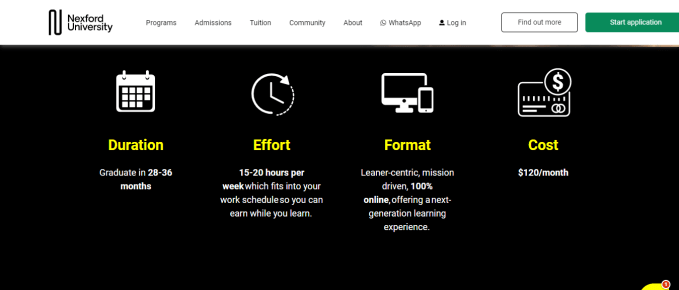Community has never felt louder in startupland. Bringing people together over a shared interest is innate to human nature. And, coming out of a lonely, draining pandemic, every startup wants to find a way to cultivate community, conversation and camaraderie as part of its value proposition.
Last week, though, the outside world got a look at how Y Combinator, one of Silicon Valley’s most famed and feared accelerators, deals with the intricacy and nuance of a scaled, yet still ultra-exclusive, community after the accelerator kicked out two founders from its internal messaging board, Bookface.
The two founders, Dark CEO Paul Biggar and Prolific CEO and co-founder Katia Damer, say they were removed from YC after publicly critiquing YC — for very different reasons. Biggar had noted on social media back in March that another YC founder was tipping off people on how to cut the vaccine lines to get an early jab, while Damer expressed worry and frustration more recently about the alumni community’s support of a now-controversial alum, Antonio García Martínez.
Y Combinator says that the two founders were removed from Bookface because they broke community guidelines, namely the rule to never externally post any internal information from Bookface.
The now-public ousting of Biggar and Damer, who turned to Twitter to first explain their experiences, is a nuanced situation. Y Combinator says that it has only removed a “dozen or so” founders in its 16 year history for violating YC ethics and Bookface forum guidelines.
Still, YC’s decision to remove these founders, especially in light of a broader reckoning around free speech and dissent within startups, has triggered a series of questions — some by YC founders themselves — around how the accelerator moderates its community, handles negative publicity and draws its own line around what can be openly said by its alumni base without consequence.
Privacy first
The best curated communities allow participants to safely, and freely, share personal experiences, debate, and even disagree. Part of that safety comes from what some see as a common rule within communities: don’t share private information publicly.
Per YC, respecting privacy is a key rule for anyone who joins Bookface, an internal messaging forum that includes some 6,000 founders of the YC commnunity, from alumni to management to current batch companies. Founders log in daily, asking for introductions to a crypto accountant or bringing up a recent job posting for crowdsourced suggestions, among other topics.
“We ask that founders don’t share anything from the forum with anyone outside of YC, as this is a community built on trust and privacy,” Lindsay Wiese-Amos, Y Combinator head of communications, told TechCrunch.
It’s more than a polite request. Amos said that when a company is accepted into YC, the founders must sign investment documents, one of which is its founder ethics policy. Within the policy, there are guidelines around the Bookface forum, including the language: “Don’t share anything in the Forum, or any links to the content posted to it, with anyone outside of YC.”
YC claims that when a founder breaks the rules, it reaches out to them with a warning, and if the rule is broken multiple times, they are removed from the community.
When a startup is removed from the YC community, YC “generally” returns the shares to the company, though it says there are exceptions. In Damer’s case, says Amos, her “co-founder is still actively working on Prolific, and both he and Prolific remain part of the YC community.”
Meanwhile, Biggar’s YC startup closed eight months after graduating from the accelerator, so YC didn’t have to sever financial ties.
Garry Tan, co-founder of Initialized Capital, and a former YC partner who has stakes in alumni companies including Coinbase, thinks there is a difference between a critical discussion and breaking community rules. Tan told TechCrunch that discussions are fine, but that these “founders violated privacy expectations of other people within the community.”
“I think YC has become an institution, and institutions are viewed with high scrutiny,” he said. “That’s not a bad thing, it’s probably how it should be.”
The ‘too far’ moment is when people try to ascribe specific political viewpoints to an institution when that institution is A) a lot of people not just a few and B) probably innocent of specifically pushing one viewpoint or another,” Tan continues.
YC’s Bookface rules are seemingly cut and dry However, in light of the actions it took against Biggar and Damer, it’s fair to wonder what happens if someone in the community disparages YC publicly, but not having to do with Bookface. Is that also an offense that would get them kicked out of the organization? And would the organization make an exception for especially promising founders?
Amos suggests that all founders are treated equally and that dissent is welcome. “We believe strongly in free speech and are open to criticism. People are allowed to criticize YC and would not get kicked out of the community for doing so,” she said.
‘I had no faith in Y Combinator doing the right thing’
Biggar went through Y Combinator in 2010. “I was like a Paul Graham acolyte,” he says. “I have a signed copy of Hackers and Painters, read every essay that he put out, and as soon as I finished my PhD, I applied to Y Combinator.”
For over a decade, Biggar says, he has been an active participant in Bookface, recently helping multiple companies with financial and relationship advice on co-founder break-ups.
When the Black Lives Matter movement was growing last summer, Biggar noticed that Bookface was relatively quiet and, as he describes it, “apolitical, but in a derogatory way” around issues such as diversity and police brutality. He compared the tone of Bookface to that of Coinbase, after Armstrong published a memo that banned political discussions at work.
Biggar’s frustration grew, hitting a tipping point in March when he spotted a founder bragging on the forum that he had skipped a vaccine queue and offering tips to help other founders do the same.
Soon after, Biggar tweeted: “For the second time, a @ycombinator founder has posted to the internal YC forum about how they lied to skip the vaccine queue in Oakland, with instructions for other founders to do the same. Absolutely fucking disgusted.”
Biggar left out screenshots of the founder’s post or any identifying material to protect the individual’s anonymity. But within hours of publishing the tweet, Biggar received a direct message on Twitter from Y Combinator co-founder Jessica Livingston, asking him to alert a partner at YC about inappropriate content on Bookface. She added: “You may get a faster and more thorough response than posting to all of Twitter.”
His response to her: “Hey Jessica! Truth be told, I’m so disillusioned with YC that it never even occurred to me.”
Biggar decided to leave up the tweet. Meanwhile, because Biggar was apparently not alone in his view of the content on Bookface — Amos says that “the community made its perspective quite clear in the comments: they were not in agreement with this founder” offering vaccination hacks — YC says it deleted the post less than 24 hours after it appeared on Bookface.
The episode wasn’t even on his mind, Biggar says, when he received an email from Jon Levy, the managing director of partnerships at YC, asking to chat last week. To Biggar’s surprise, Levy told him that he was being removed from the YC community. That meant he was being removed not just from Bookface, says Biggar, but he is no longer invited to Demo Day or allowed on YC Slack.
Notably, Biggar says that YC didn’t give him a warning or the option to take down any posts before ushering him out of the broader YC community, though he suspected it was becoming stricter about its community rules. A week before he was booted, Biggar says that Y Combinator reminded founders about a “no leak” policy within Bookface.
YC offers a different recounting of the events, saying it was only “recently” notified of Biggar’s tweet through someone in the YC community and that all founders are given a warning. YC also states that a founder is removed only after violating the terms “multiple” times, while Biggar maintains that he only once tweeted about Bookface. Asked about other examples of Biggar violating its terms, YC declined to comment further.
Says Biggar now of these recent events: “I got criticized for not posting it internally, which I think is kind of bullshit. But, you know, the reason I didn’t post it internally is just that I had no faith in Y Combinator doing the right thing. I didn’t think that going public would do anything, either. I mean, I’m not someone who actually matters here.”
“This is the smallest way that one could possibly call out YC,” Biggar continues. “A couple of community members did a shitty thing, which I think is reflective of the community. That for them is, like, too much dissent — shut it all down.”
If you are not “the people who have been elevated to part-time partners [or are] tight with the people that matter,” no one “cares what you think. No one ever asks what you think . . .You can’t have dissent internally. There are just too many disciples.”
‘YC is not soul-searching’
Damer’s own removal from Bookface might not have been publicized if not for Biggar sharing on Twitter last week that he’d just been “kicked out.” Soon after, she came forward, tweeting to him that “2 weeks ago, YC kicked me out as well” for her public critique. Specifically, says Damer, she was thrown off Bookface because she called out misogyny and the lack of diversity within the accelerator community.
It began with a memo on Bookface with the title: “Is YC an inclusive organization? If we continue like this, YC will lose its great reputation.” In her post, Damer explained that she noticed many people defending Antonio García Martínez, the author of Chaos Monkeys who recently was invited to join Apple, then asked to leave Apple, after a petition to investigate his hiring was signed by more than 2,000 Apple employees. They were concerned about specific book passages, including one that reads: “[M]ost women in the Bay Area are soft and weak, cosseted and naive despite their claims of worldliness, and generally full of shit.”
Like the Apple employees who circulated the petition, Damer believes the book is proof that García Martínez is a “misogynist,” writing on Bookface about how “disconcerting” an outpouring of support for him on the internal platform.
“I care about YC and that’s why I am writing this,” Damer said. “What is happening right now is not normal, and it looks like YC is soul searching. If this doesn’t get under control, YC will start missing out on some of the best deal flow, especially from women and underrepresented founders.”
Livingston soon responded.
“YC is not ‘soul-searching’,” Livingston wrote. “Antonio participated in YC a decade ago, and I remember him as a decent person…I think if anything the YC community should be the ones defending Antonio, because many of us have first-hand knowledge of him, instead of just cherry picked quotes from a book. And we know from being in the startup world how often people are criticized unfairly by the press and in social media.”
Livingston’s post received hundreds of upvotes, while Damer’s post received a handful. Aggravated, Damer soon went to LinkedIn and Twitter to post screenshots of the interaction, “retracting” any previous praise she’d given to YC’s founders, and advising founders not to give up equity before VCs earn their trust.
Soon, a YC partner e-mailed Damer with an invitation to reach out to group partners or them directly about any YC concerns, according to a document shared with TechCrunch by the accelerator. The partner also explained that one of the community rules at Bookface was not to share anything from the forum with anyone outside of YC. The partner asked Damer to take down the Bookface screenshots. Damer did not respond to the email and did not take down the screenshots.
Less than two weeks later, Damer received a second email from the partner, this time with a clear message: Because she did not delete her posts, she had been removed from Bookface and could reach out if she wished to re-engage.
The communication was extensive compared with the organization’s handling of Biggar’s tweet, and suggests that YC did a far better job in following its own protocols in Damer’s case.
Either way, Damer thinks that YC’s guidelines encourage complacency, especially around issues of diversity, and suggests her waning enthusiasm for the organization ties directly to its not “stepping up” for “women when given the chance.” Adds Damer, “I don’t think any one of [the partners] is malicious, I actually think they are good people. It’s more about the complacency — that is what bothers me so much,” she said.
As for whether she regrets airing her exasperation publicly, she suggests she didn’t have a choice. “People use rules when they don’t know what else to do. This is about courage, this is about actually standing up for what is right.”
Community rules can be clear, but enforcement muddy
There is plainly an argument for and against Y Combinator’s deciding to remove founders from its forum. It’s typical of investors to ask portfolio companies to agree to certain terms and conditions. In this case, YC specifically alerts those who join its organization that the privilege of using Bookface comes with its own, additional, terms and conditions.
Still, whether the terms and conditions around its community are fair or reasonable could become a question mark in the minds of founders who haven’t yet applied to the program — as could YC’s different handling of two founders who broke the rules.
Broadly speaking, people within communities who feel like they are not being heard internally — yet who are also being asked not to express their disdain publicly — are pushing back on such limits. Coinbase saw at least 60 employees leave last fall after being told that the company would no longer tolerate internal political dissent or debate. In late May, the company Basecamp reportedly lost a third of its staff following disagreements over the company’s attitude toward internal political debates. Most recently, Medium lost half its staff in July after a strategy shift and an internally criticized culture memo.
Because of its successful track record, YC may be more powerful as an institution than any one company, but rivals are always looking for weaknesses, and asking members not to air their grievances outside of YC could ultimately impair the outfit. A generation of founders and operators is showing it is less and less willing to suppress a viewpoint in the service of others, and the most talented of these individuals have no shortage of options when it comes to both mentorship and capital.
YC, with its extensive network — perhaps even because of it — may increasingly find it isn’t immune to the trend.






